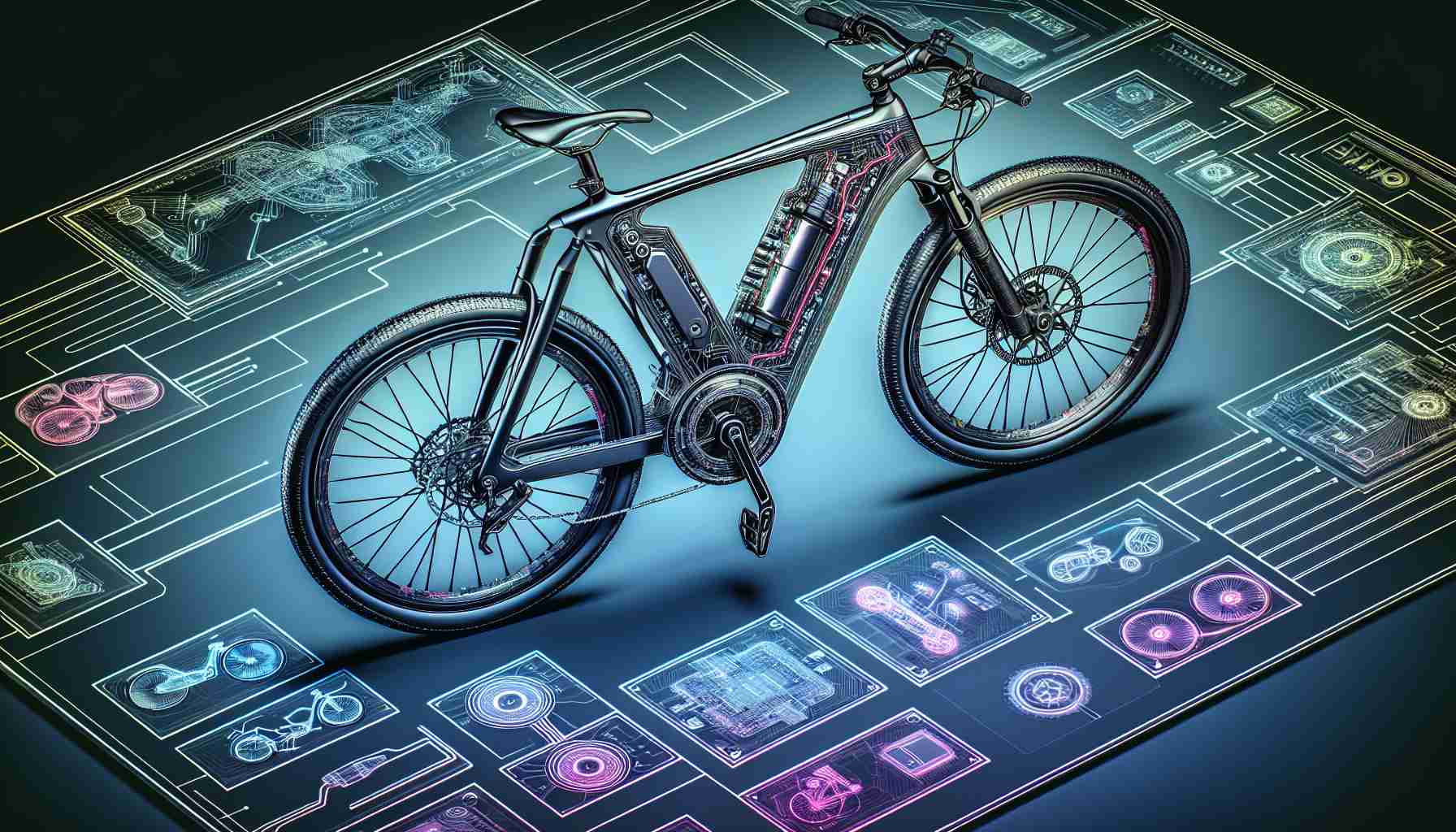The world of e-biking has taken a monumental step forward with the introduction of the Swytch Max+, a cutting-edge conversion kit from the innovative UK-based company, Swytch Bike. This transformative kit, now available for preorder, promises to seamlessly turn a conventional bicycle into a high-performance electric one.
A Revolutionary Design
The Swytch Max+ stands out with its sleek, smartphone-sized battery pack that integrates a USB-C port for device charging and bike lighting, making it exceptionally user-friendly. This kit is engineered for easy installation, comprised of three core components: a pedal sensor for the crankset, a motorized front wheel, and a handlebar-mounted power pack. The 250-watt motor within the front wheel is engineered to deliver speeds of up to 25 km/h, adhering to local regulations in various countries.
Unmatched Battery Range
One of the most noteworthy aspects of the Swytch Max+ is its remarkable battery performance. The upgraded power pack offers up to 97 km of range in the Max++ version, a sixfold increase in autonomy compared to earlier models. This flexibility allows riders to switch between electric and manual modes effortlessly, giving them complete control over their riding experience.
Options and Pricing
Swytch Max+ is available in two versions: a standard option offering 48 to 64 km of range, and the enhanced Max++ version providing 72 to 97 km. The introductory price for the basic model is set at $499, with availability across the United States, Canada, and Europe anticipated next summer.
For those ready to join the e-bike revolution, visit Swytch Bike’s official website to place your preorder and experience the future of cycling today. What do you think of this new technology—will you be upgrading your ride?
Unlocking the Future: Hidden Perspectives on E-Bike Conversions
The advent of the Swytch Max+ conversion kit marks a pivotal moment in the realm of electric biking, yet there’s a wealth of untapped information that further illuminates its potential impact on individuals, communities, and even countries. Beyond the impressive technical specs and design, there are societal and economic implications worth exploring.
The Unseen Impact on Urban Mobility
The rise of e-biking is closely intertwined with the global push for sustainable urban transport solutions. Converting conventional bikes into electric ones has a particularly profound impact on urban commuters, significantly decongesting city roads and reducing the carbon footprint. The Swytch Max+ enhances this movement by offering a cost-effective and straightforward solution to e-bike conversions that can dramatically alter daily commuting patterns.
Empowering Local Economies
Communities stand to benefit economically from the surge in demand for e-bike kits like the Swytch Max+. An increase in local retail outlets offering installation services or maintenance for converted e-bikes can boost local economies, providing new jobs and skill development opportunities. Furthermore, the lower running costs compared to cars allow users to save money on transport, redirecting those savings into the local economy.
Challenges and Controversies
Despite its benefits, the transition to e-biking is not without its hurdles. The cost of e-bike kits, although seemingly affordable, might still pose a financial barrier for low-income families. This raises the question of whether local governments should subsidize such technologies to ensure equitable accessibility.
Moreover, the integration of e-bikes into existing cycling infrastructure is a topic of debate. Some cities might struggle to adapt their bike lanes to accommodate the increase in e-bike traffic, potentially leading to regulatory and safety concerns.
Advantages and Disadvantages of E-Bike Conversions
Advantages:
1. Eco-Friendly: Reduces emissions and promotes cleaner air.
2. Economic Benefits: Saves money on fuel and maintenance, stimulates local economies.
3. Health: Offers physical exercise while providing assistance when needed.
4. Versatility: Easy switching between electric and manual modes.
Disadvantages:
1. Initial Cost: Can be prohibitive for some, even at the reduced price point.
2. Infrastructure Needs: Requires cities to update cycling paths and regulations.
3. Battery Material Concerns: Environmental impact of battery production and disposal.
Can E-Bike Technology Evolve Further?
Innovation in e-bike technology seems limitless. Future developments may focus on improving battery life further, integrating smart technology for data analytics, and enhancing the modularity and versatility of conversion kits to encompass a wider range of bike models.
For those interested in exploring the broader scope and future possibilities of e-biking, consider visiting these helpful websites for more information: Swytch Bike and Cycling UK.
Will the conversion kits become the dominant force in the cycling world, or is there yet another revolutionary advancement on the horizon? As cities and citizens adapt to these technologies, only time will tell how deeply e-bikes will reshape our world.







